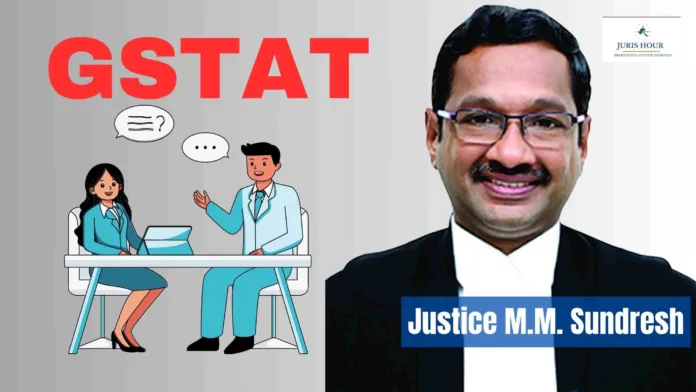The Supreme Court Judge, Justice M.M. Sundresh, currently heads the Interview Panel for the Goods and Services Tax Appellate Tribunal (GSTAT), a key institution established to streamline dispute resolution under India’s GST regime. Known for his incisive legal reasoning and balanced judgments, Justice Sundresh has delivered several landmark rulings in the domain of indirect taxation that continue to shape the interpretation and implementation of GST law. For aspiring GSTAT members, a sound understanding of these pivotal decisions is not just beneficial—it is essential.
This article highlights the most significant judgments authored or influenced by Justice Sundresh that every GSTAT interview candidate must be familiar with.
The Supreme Court has upheld the constitutional validity of GST Arrest Provisions and held that BNSS/CrPC Protections for Arrested Persons Apply to GST & Customs Acts.
The Supreme Court has dismissed a Public Interest Litigation (PIL) filed by a customs officer seeking an investigation into the 2019 incident at Kolkata airport involving Rujira Banerjee, wife of Trinamool Congress leader Abhishek Banerjee, and her sister Maneka Gambhir.
The Supreme Court has upheld the constitutional validity of GST Arrest Provisions and held that BNSS/CrPC Protections for Arrested Persons Apply to GST & Customs Acts.
In a landmark verdict, the Supreme Court has ruled that individuals facing potential arrest under the Goods and Services Tax (GST) Act and the Customs Act can seek anticipatory bail, even if no FIR has been registered.
The Supreme Court on Thursday observed that there is some merit in allegations that tax officials have been coercing individuals into paying Goods and Services Tax (GST) under the threat of arrest. The Court made this observation based on data presented before it while hearing a batch of petitions concerning the powers of arrest under the GST Act and the Customs Act.
Read More: SC Judge Justice M.M. Sundresh Heads GSTAT Interview Panel – PART-1

